We have brought together all the tiles and accompanying text used in our #BasicBirthRights campaign in February 2021. The campaign came about after an NHS Trust wrongly put a post on social media saying that freebirth (unassisted birth) was illegal. It’s really important that both women/birthing people and those that care for them, understand what #TheBottomLine is in maternity care so that conversations that lead to decisions start from a shared understanding of what an individual can or can’t choose to do, and also of the obligations on maternity services to uphold human rights. Please feel free to share these tiles.

The right to bodily autonomy (deciding what should happen to your body), including when pregnant, is strongly protected in UK common law. It includes the right to decline anything that someone proposes to do to you from taking your blood pressure to performing a caesarean. It also includes the right to decline anything that might be considered a standard part of maternity care; for example, vaginal examinations during labour, or screening during antenatal care, or coronavirus testing during the pandemic.
The only exception is if you lack the mental ability to make an informed decision (known as mental capacity) in which case the processes set out in the Mental Capacity Act must be followed. As a parent you also have the right to decline any intervention, test or treatment for your baby. If healthcare professionals strongly disagree they must go to Court to get an order to treat your baby without your agreement. You should never be coerced into treatment for example, by a threat of referral to social services.
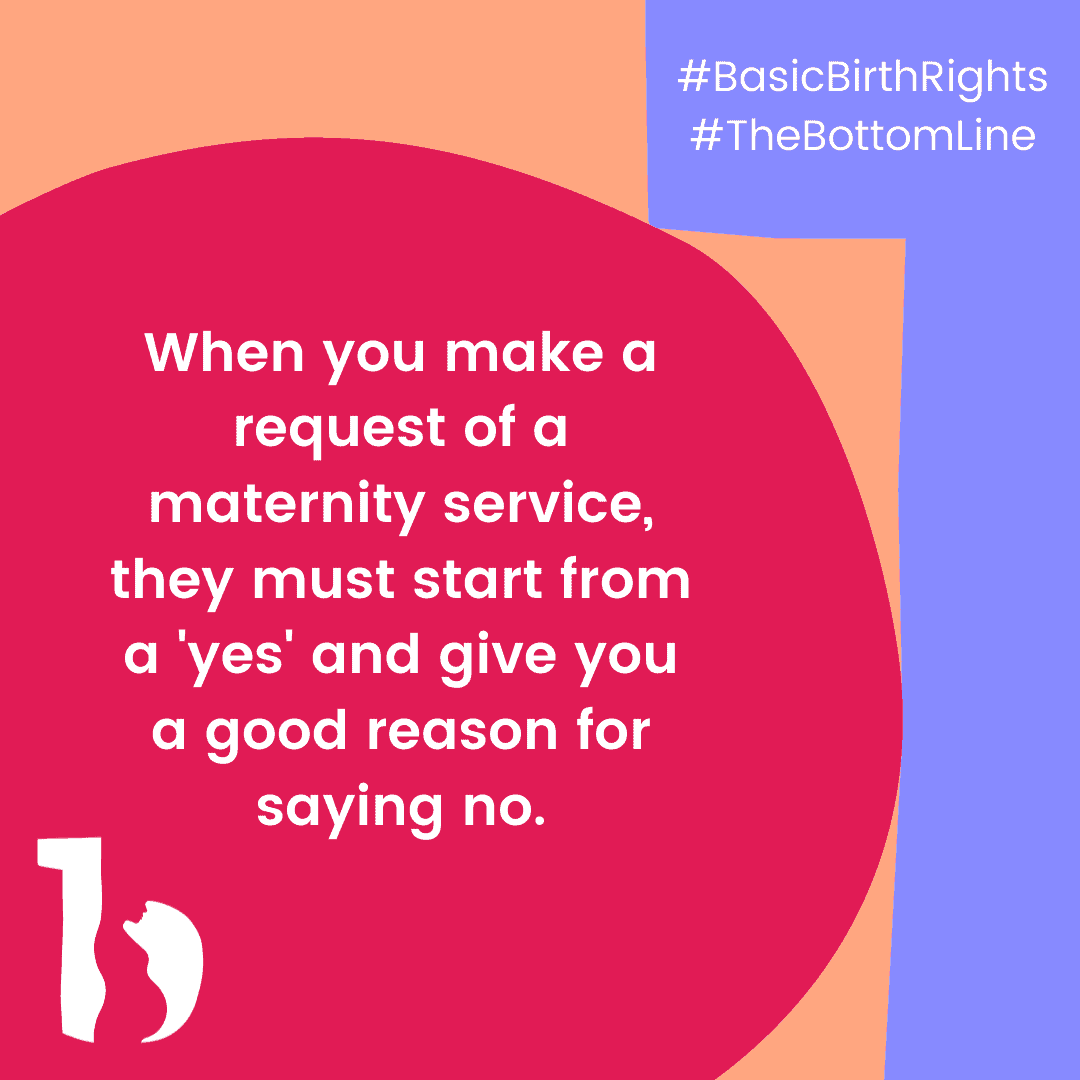
In other words if you want to give birth in the midwife led birth centre, or to have a caesarean, or to have your mum attend your birth as well as your partner, a Trust must first look to accommodate your decision, and only say no if they have a good, evidence based reason, having considered your individual circumstances. It is not good enough simply to say it is not their “policy”. Care should be orientated around you. It is your right to decline any recommended option and to choose something which healthcare professionals might regard as unusual or “outside of guidance”.
For more specific advice, have a look at our factsheets at www.birthrights.org.uk or email us at advice@birthrights.org.uk
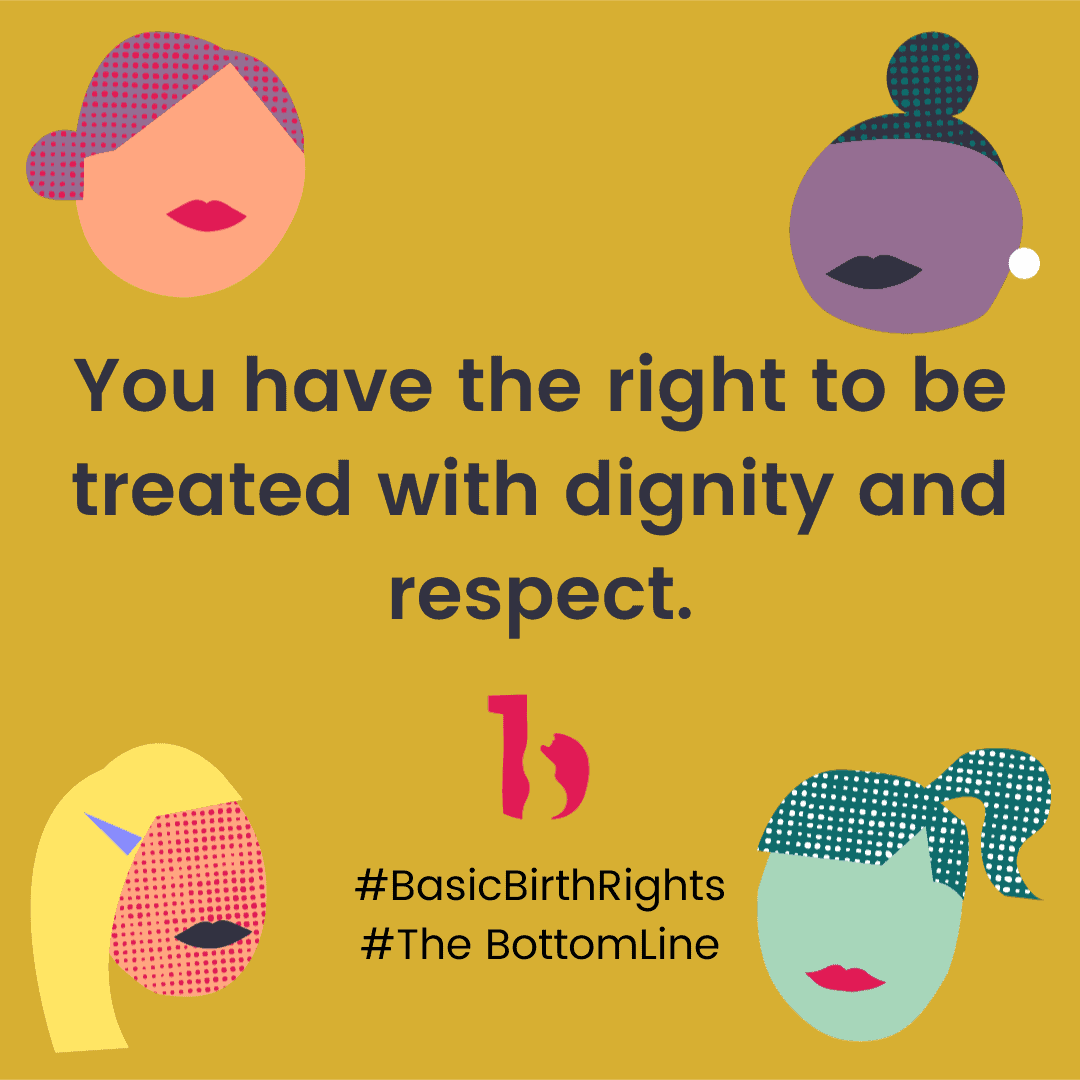
This means that staff should be polite and respectful to you.
You should be provided with evidence-based information that is relevant and accessible to you, have your questions answered and be supported to make informed decisions.
You have the right to be kept physically safe, but also psychologically and culturally safe. For example, if you ask to see only female healthcare professionals this should be respected if at all possible. If you need to see an anaesthetist for instance and there are no female anaesthetists available all options should be discussed, so you can decide what to do.
You should not be left in an exposed or vulnerable position, for example, having the curtains opened without asking when you are breastfeeding.
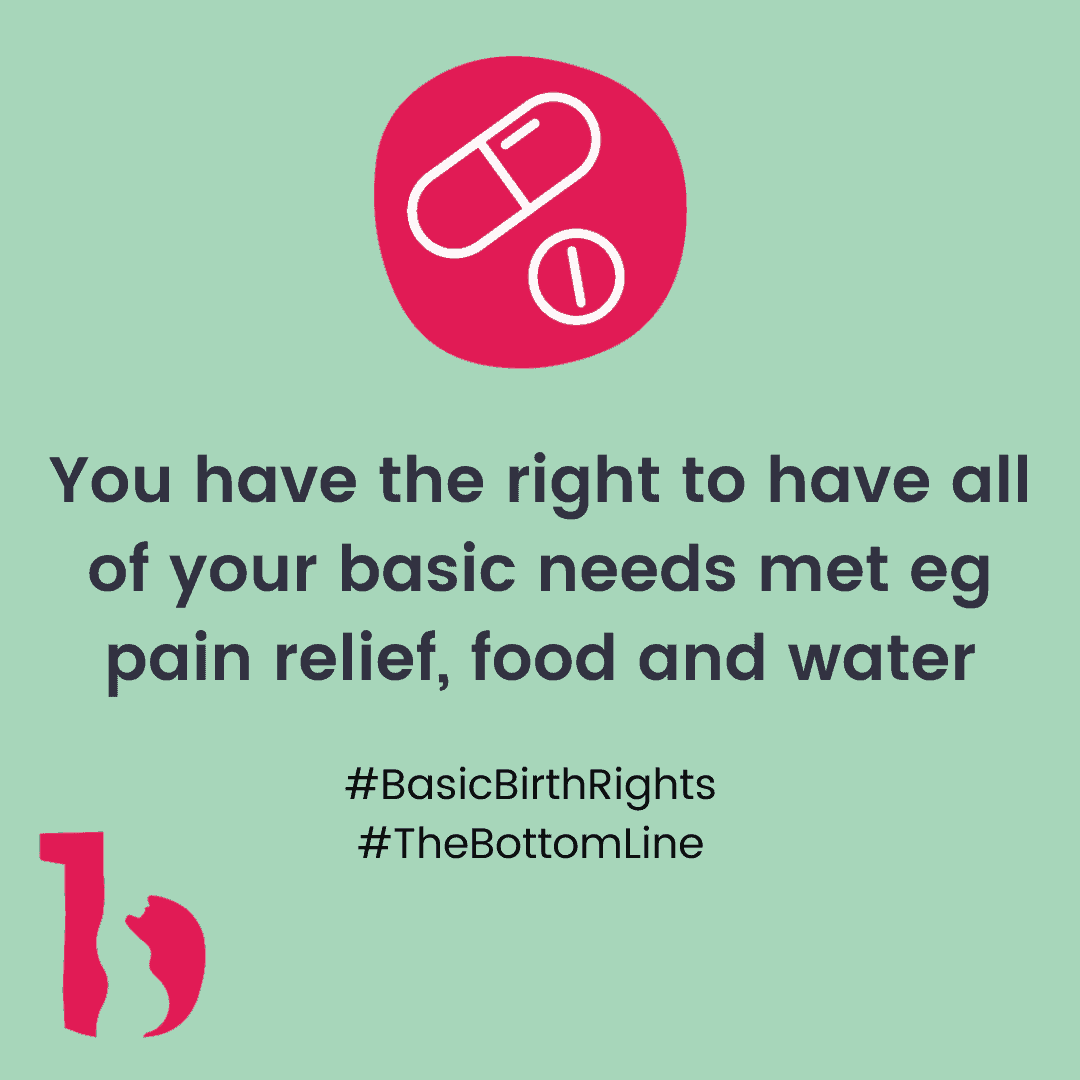
When you are staying in hospital, your basic needs must be met. For example, you must have access to food, water, support to go to the toilet, wash and care for your baby if needed and be given timely pain relief.
Hospitals must be particularly sure they can provide this if there are restrictions on partners/visitors.
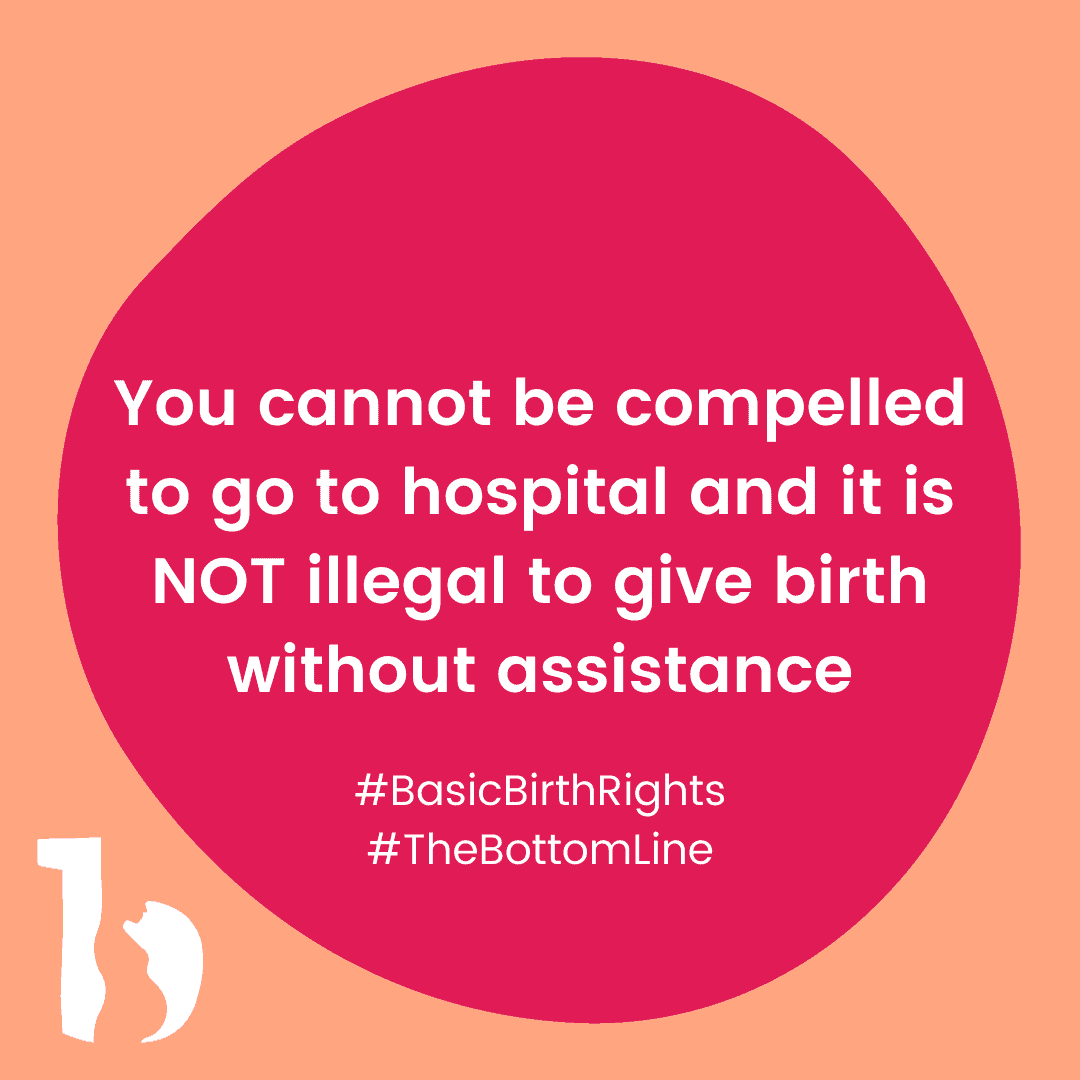
In normal times, home birth is an option that NHS England expects to be available in all areas. During the pandemic some services have suspended home birth services for temporary periods due to significant staff shortages and/or issues with ambulance response times, although other services have kept going and/or in place alternative measures such as private ambulance services to ensure home birth remains an option.
However, although you will wish to think carefully about any decision to give birth without assistance, you should know that no one can compel you to leave home to give birth, and that unassisted birth is not illegal. A midwife’s duty is to put the people they care for first – this still applies even in a pandemic.
For more information, see our factsheet: https://birthrights.org.uk/factsheets/unassisted-birth/
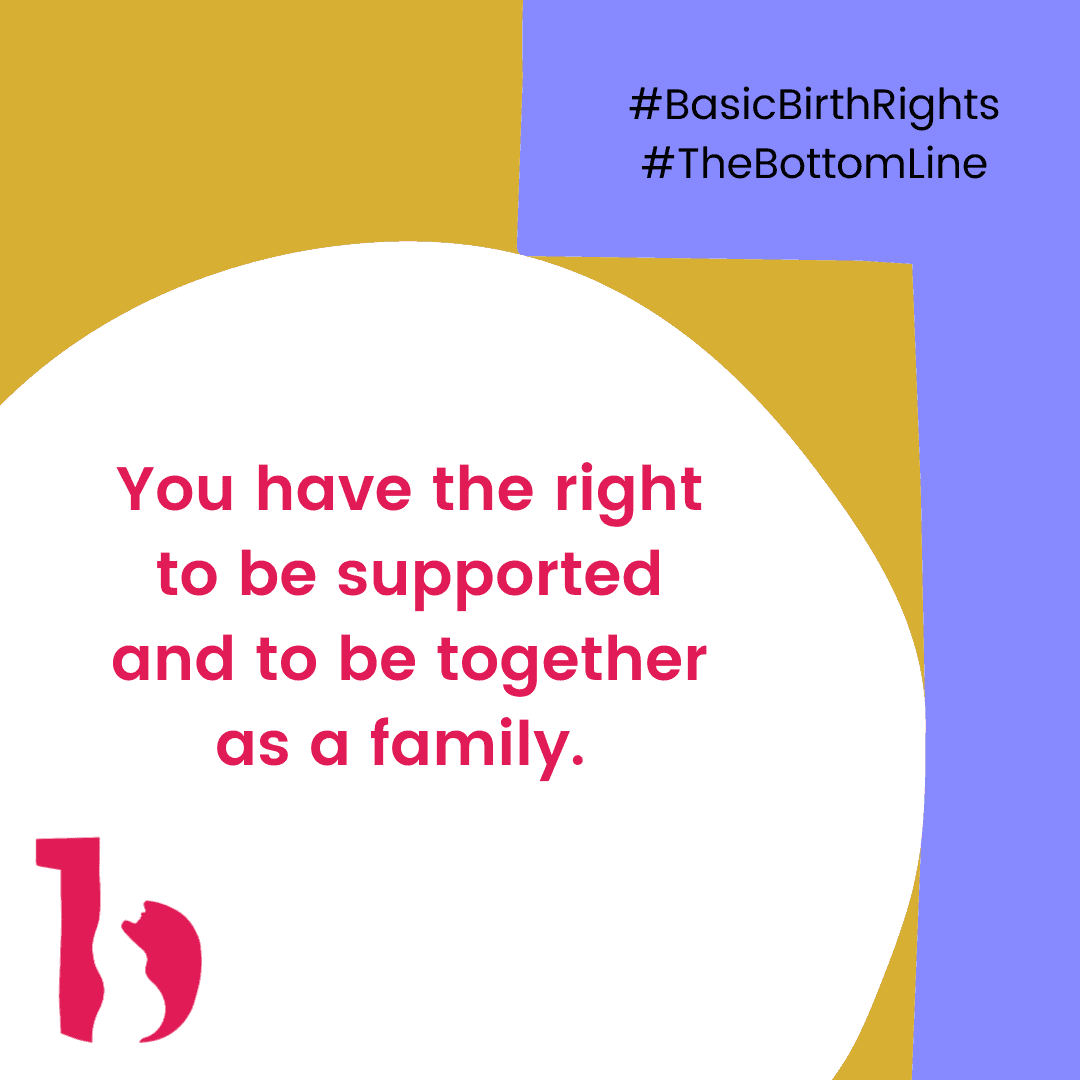
Article 8 of the European Convention of Human Rights gives all individuals the right to private and family life. This means that you can choose where and how to give birth and who is with you.
This is the starting point for all maternity services. This right can be restricted (during coronavirus for example) but only if the Trust/Board can show that it is necessary, and that the restrictions are the minimum needed to achieve a “legitimate aim” such as protecting the health of others. In other words, maternity services can put in place restrictions to reduce the spread of coronavirus. However they have to show that they have assessed the impact of the restrictions on those using the service (see our tool: http://ow.ly/Kuzf50Don1W), and concluded that the restrictions are “proportionate”.
NHS England guidance issued in December 2020 states that partners are not visitors and all Trusts in England must be implementing plans to ensure partners can access all areas of maternity services again as quickly as possible.
Women should always have the option of being supported by a companion of choice during labour and birth. It is hard to see how forcing women to give birth without this support could ever be seen as proportionate, even during the pandemic. National guidance has always been clear that all women or birthing people should be able to have a supportive partner with them during labour and birth, no matter how they give birth (including in theatre) and whether they have COVID or not.
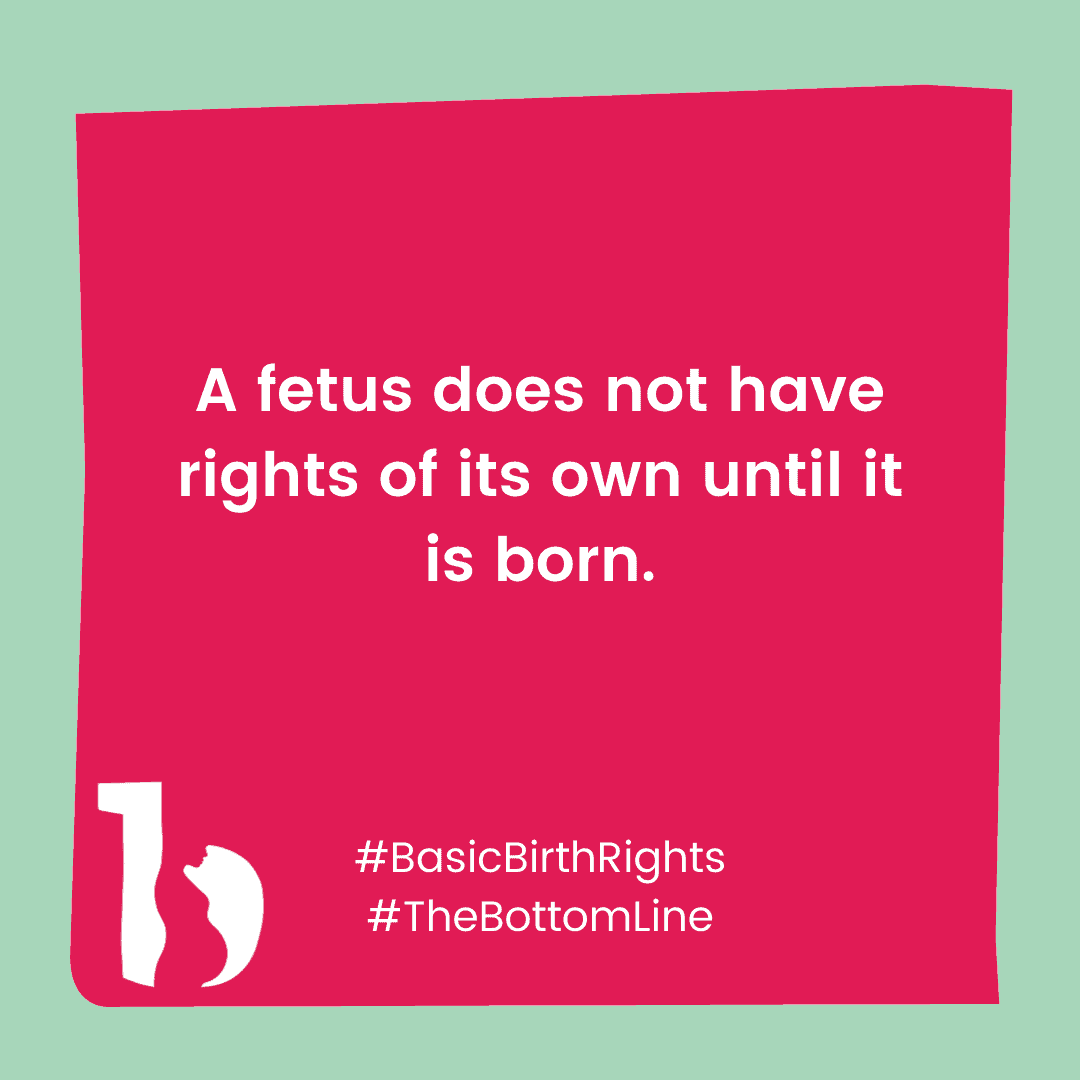
This means that your consent cannot be overridden even if a healthcare professional believes your choices might harm you or your baby.
In addition, you should never be referred to social services solely because of decisions you have made about your birth, even if healthcare professionals are worried that the baby may be harmed as a result. Social services referrals are only appropriate if healthcare professionals have good reason to believe there is a risk of “significant harm” to the baby after the birth.
Furthermore, if you take a different view to a midwife or doctor, it should not be assumed that you lack the mental capacity to make decisions about your care.
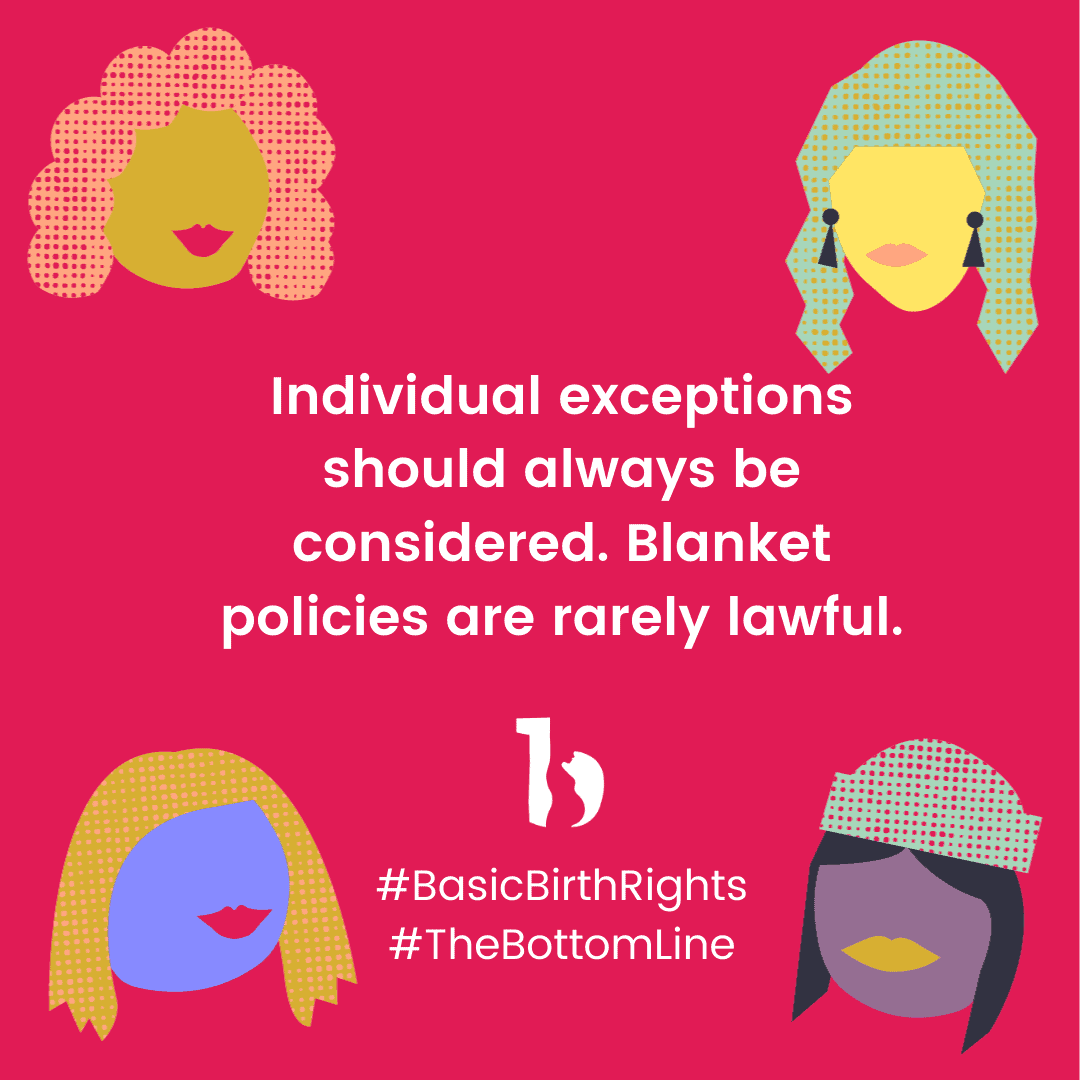
We often hear of maternity services saying that they can’t do something for one woman because it wouldn’t be fair on everyone else. In law, fairness usually means ensuring everyone get the care they need NOT treating everyone the same.
The Equality Act 2010 requires maternity services to make “reasonable adjustments” for those with protected characteristics. For example women and birthing people who don’t speak English as a first language must have access to information in their preferred format and to interpretation, to enable them to make informed decisions like anyone else.
If someone has exceptional circumstances, exceptions must be made. For example, if someone has experienced a previous loss and is particularly anxious about a scan, they should be allowed a support person to come with them even if others are not. Beware of blanket policies – they are rarely lawful.
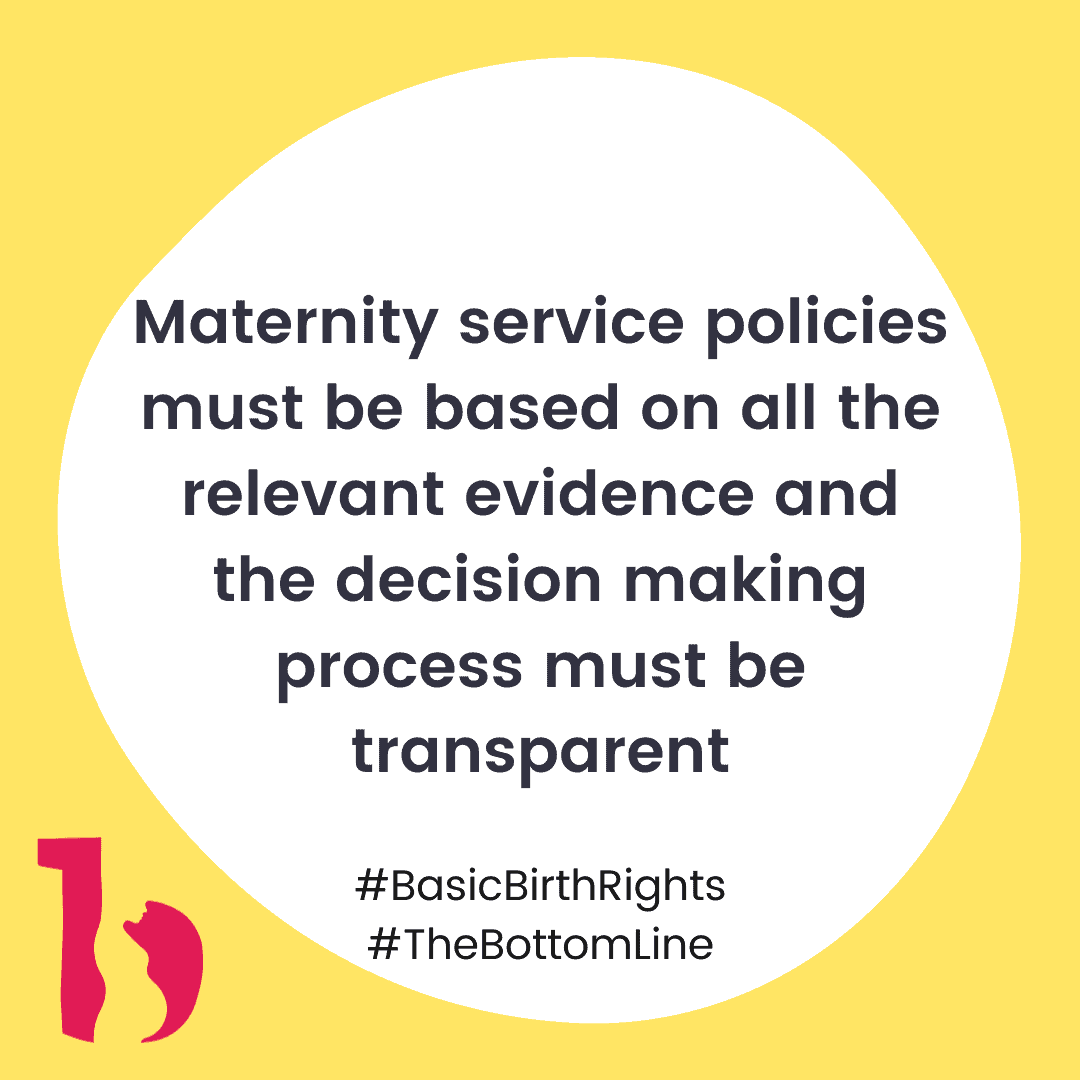
Just like other Government and public sector bodies, Trusts/Boards are paid for by the taxpayer and are accountable for the decisions they make.
Trusts/Boards should be clear and open about how decisions are reached. For example, it should be clear what factors have been taken into account and how this information has been weighed up. Risk assessments should be publicly available, or at a minimum made available on request.
If you ask for an explanation, you should be given one. “It is hospital policy” is not a sufficient explanation.
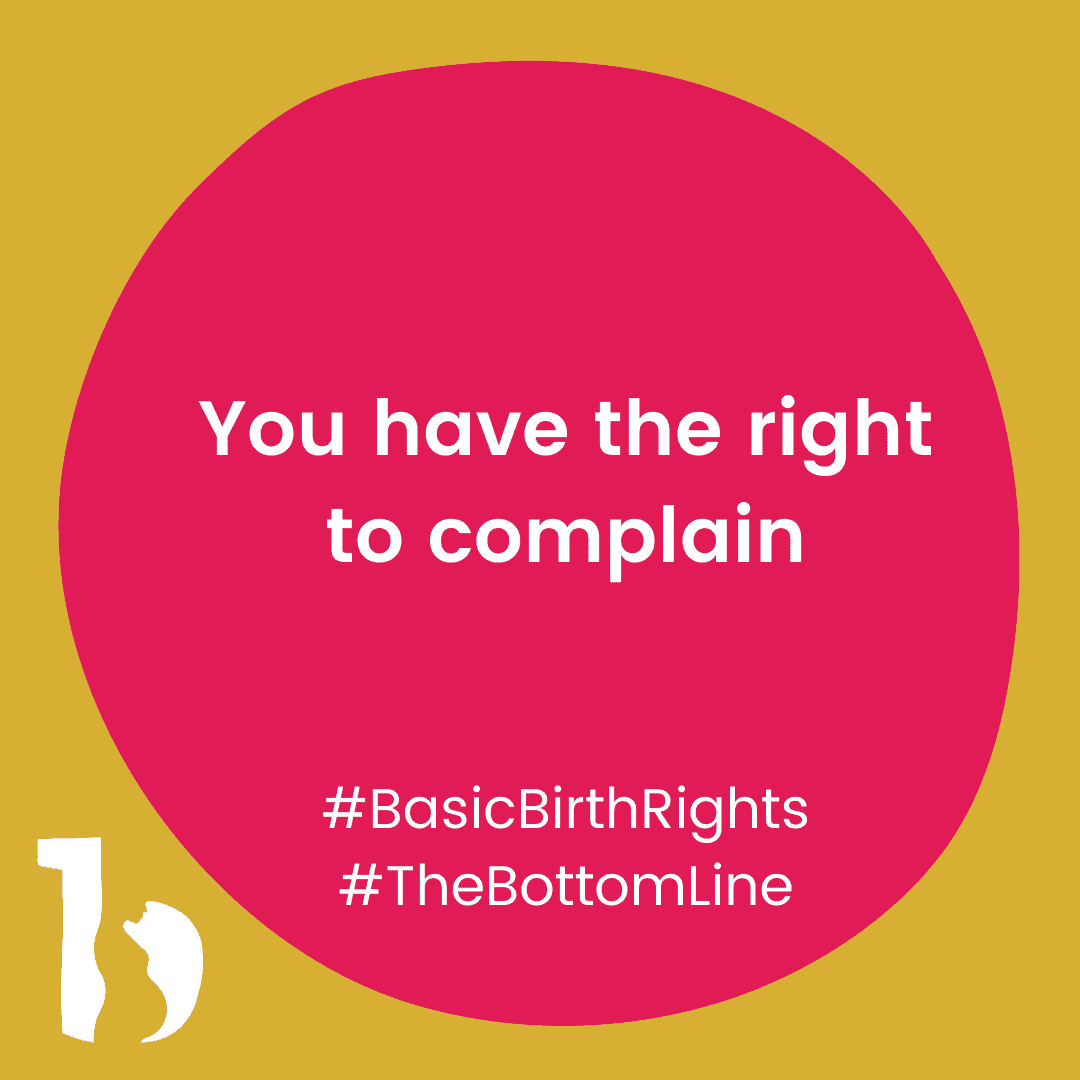
If you do not feel you have been treated in the way you should have been, you have the right to complain. By doing this you are providing an opportunity for services to learn and change. If a service does not adequately address your complaint you have the right to take your complaint to the Ombudsman.
You can find out more in our factsheet about making a complaint: https://birthrights.org.uk/factsh…/making-a-complaint/
If you would like more advice or support about your #BasicBirthRights please email us at advice@birthrights.org.uk. Our email advice service is open to women and birthing people AND healthcare professionals.
